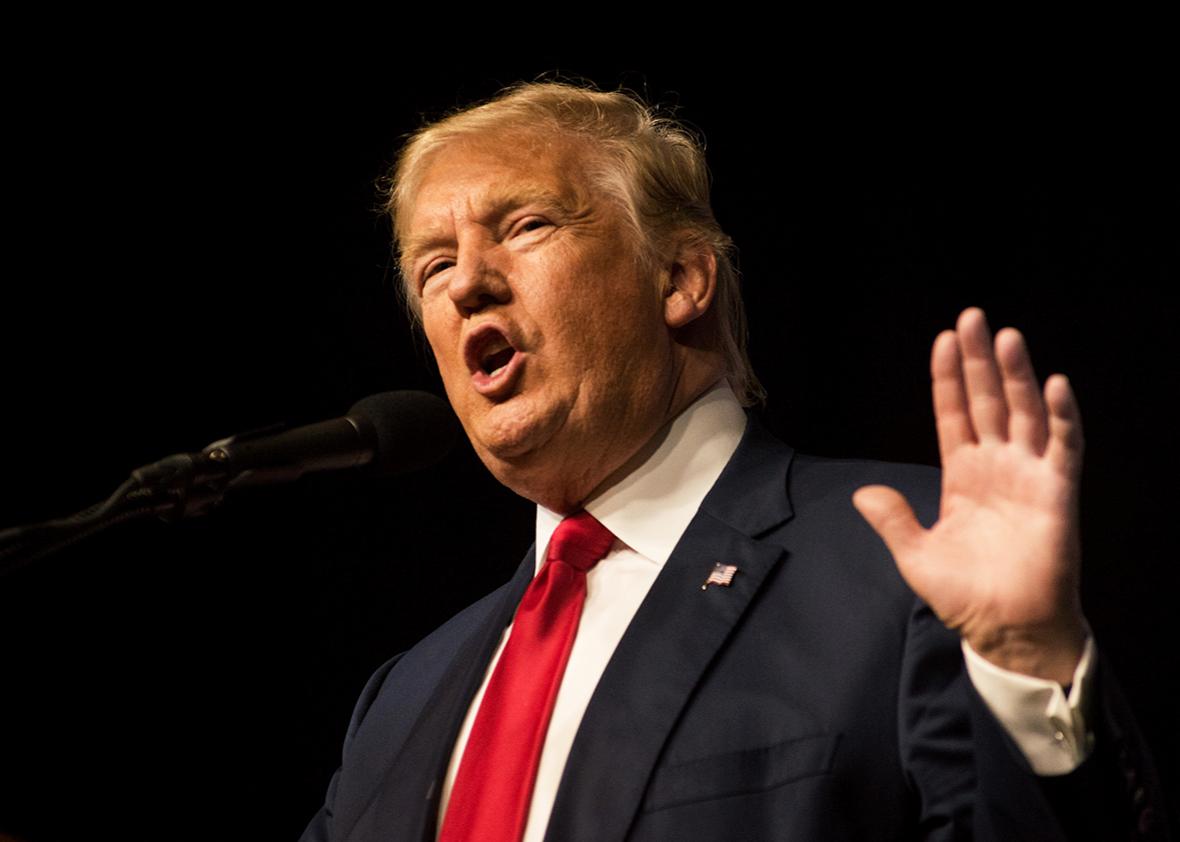A number of years ago, one of us led a study trip of MBA students to Buenos Aires, Argentina. A U.S.-educated investment banker came to speak to the class about differences between the American and Argentine business environments. As a summary statement of what was wrong with his country, he explained that, “It’s not just that people cheat on their taxes here. When you go out for dinner, it’s something you brag about.” There was no shame in underpaying taxes or otherwise skirting the rules—it was accepted as the norm, even though it was one that didn’t serve the collective best interests of Argentines.
One reason why Donald Trump’s recent bluster about his taxes is so troubling is that it challenges the social norms that make America a great and prosperous country. Last week, during his debate with Hillary Clinton, he suggested that getting out of paying taxes made him “smart.” Should he become president, we would have a chief executive whose leadership by example would encourage Americans to look out for no one but themselves.
Social scientists generally break down any decision—including whether to break the law—into a set of costs and benefits. Some of these may be financial—the dollars saved by evading taxes versus the risk of fines if caught. Others are psychic: the opprobrium we would face if we act against what’s accepted as appropriate in our society. How do we know what’s appropriate? It depends on what we observe others doing. It’s easy to be a part of the herd and painful to stick out. In Italy, a greeting involves a kiss, not a bow; in Japan it’s the opposite. It’s not that kissing or bowing is fundamentally better, but it makes for fewer awkward introductions if everyone has the same understanding of what’s acceptable.
Tax evasion has obvious financial costs and benefits. But they aren’t just determined by the Internal Revenue Service. Tax evasion is also governed by social norms—it’s easier to go along with what you expect others will do and what others see as proper conduct.
In Argentina, according to our investment banker friend, there is a culture of bending or breaking the rules in one’s own favor. A very different norm prevails in the United States. Despite the modest and infrequent penalties imposed by the IRS, researchers have found that well over half of Americans pay their taxes in full, and scofflaws were by and large modest in their underpayment. This contrasts sharply with Greece, where tax evasion has been described jokingly by politicians as a “national sport,” and where tax evasion is, by one measure, at least twice as high as in the U.S. In Italy, there is reliable research indicating that uncollected tax rates are nearly three times higher than in the States. And Americans who don’t pay in full at least tend to keep these shameful facts to themselves.
It’s a good thing we have this culture of rule-following in the U.S. because it’s incredibly expensive to catch and punish cheaters—that’s why, according to a federal prosecutor we spoke to recently, an individual typically needs to be hundreds of thousands of dollars in arrears, caused by willful noncompliance, for the feds to come after you. Furthermore, imagining that we might end the problem of tax avoidance and evasion through new laws or enforcement efforts is wishful thinking. The day any such laws are enacted, creative and enterprising tax lawyers will begin finding ways around them. Laws work best—in fact, laws only really work at all—when social norms reinforce them.
It’s the nature of norms that they’re resistant to change: It’d take a lot of effort and persistence to turn Japan into a nation of kissers. But when they do, it often involves direction from the top. Leaders can provide highly visible examples that guide citizens’ expectations of what’s right and what’s wrong. When, for example, Bogotá, Colombia’s eccentric mayor in the 1990s, Antanas Mockus, wanted to encourage the city’s residents to use less water during a drought, he appeared on television lathering up in the shower—with the tap off. (Mockus achieved some renown for cleaning up Bogotá’s deeper problems of violence and corruption using similarly quirky—and resolutely norm-based—reforms. He is perhaps best known for hiring mimes to mock jaywalkers in the streets of the capital, helping to bring down traffic fatalities by 50 percent and contributing to citizens’ beliefs that lawbreaking behavior was not acceptable, and indeed subject to ridicule.)
We’re not suggesting that the American people will mindlessly follow a leader into dishonor and collective ruin. Americans didn’t suddenly start cheating on their spouses in greater numbers when we learned that Bill Clinton was hopelessly unfaithful. (Though recent remarks from Rudy Giuliani might suggest that at least he thinks infidelity’s become the norm.) Clinton never boasted that infidelity should be the new normal. Leaders are frequently caught in acts that collide with current norms—it’s far rarer for them to try to make a virtue of their sins.
We still don’t know whether Trump broke any laws. But that’s perhaps too fine a point to many Americans, who see only a man bragging that not paying taxes makes him a good businessman—a claim that is belied by recent revelations of a near billion-dollar loss reported in 1995. (The claim that he has a fiduciary duty to investors to minimize taxes is also specious—the tax controversy surrounds Trump’s personal taxes, not those of his companies.) For many, a president who touts tax avoidance could be enough to make it socially acceptable: If the commander-in-chief is doing it, why shouldn’t we all? Who will want to be the sap picking up the tab for all of the “smart” people who’ve figured out ways around paying their full shares? We may thus find that our Argentine friend’s laments about his country apply equally well to America. Laws matter, but so do culture and norms. And Donald Trump would lead this country toward a culture of corruption.
